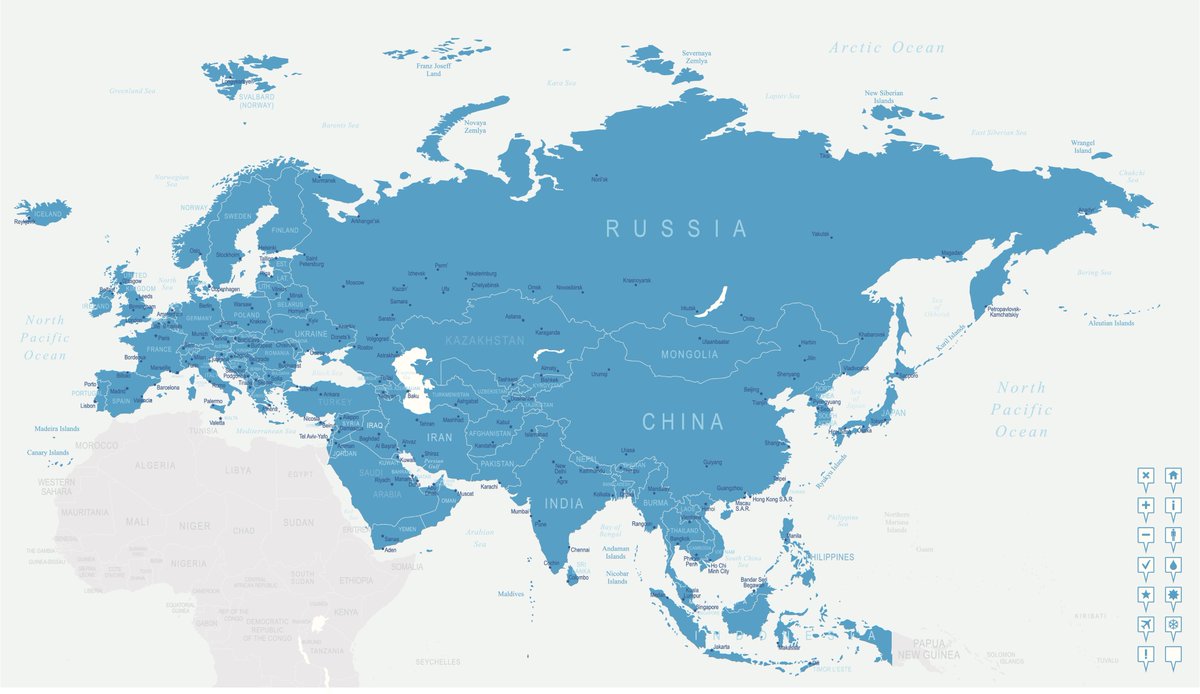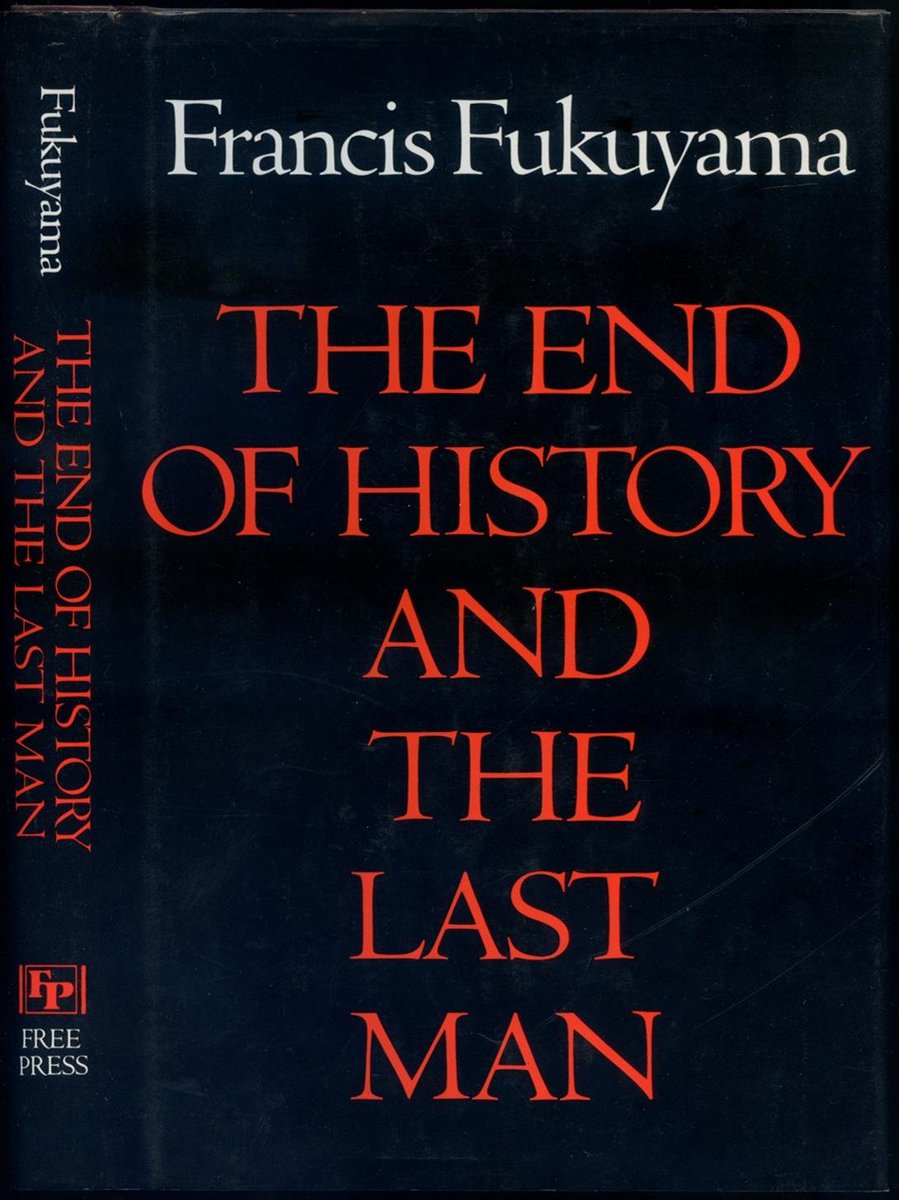A thread on America's foreign policy and its connection with economic inequality and elite power:
One of the big reasons the US is so exceptional is it's geography. 1/n
One of the big reasons the US is so exceptional is it's geography. 1/n

The US has more navigable water ways than the rest of the world put together. North America is home the largest stretch of contiguous arable land. The US not only controls most of that arable land, its inland water ways, the Mississippi River Basin, overlays perfectly. 2/n 

Additionally, the US has more natural deep water ports than anywhere else in the world, and it borders both the Atlantic and Pacific giving it a geographic advantage when it comes to trade. By dominating the North American continent, the US is a de-factor superpower. 3/n 

America has a few simple geostrategic objectives: 1) Maintain control of North America. 2) Prevent outside powers from gaining influence in the Western Hemisphere. 3) Control the world's sea lanes. 4) Prevent any Eurasian regional hegemon from emerging and building a navy. 4/n 

There are only three regions that can produce a Eurasian hegemon capable of threatening the US: Western/Central Europe, the Middle East, Northeast Asia. Nowhere else has the population, industry, and/or natural resources to challenge the US. 5/n 

US grand strategy since the early 20th Century is to be the offshore balancer. Essentially, US foreign policy is to cause problems for would-be hegemons such as Germany in WWI/WWII, Imperial Japan, the Soviet Union, and Saddam's Iraq in 1991. 6/n 

Offshore balancing relies heavily on partners in key regions to block the emergence of possible hegemons. However, since the collapse of the Soviet Union, US foreign policy has experienced a notable shift. 7/n 

For the past 30 years, the US has oscillated between primacy and liberal internationalism. Put simply, primary believes the US will rule the world while liberal internationalism believes the UN will rule the world. 8/n 

While primacy and liberal internationalism have different means, they both seek the same outcome: "The End of History." It's the triumph of liberal democracy (according to Western norms) and neoliberal economics. Humanity is destined to hold hands at Davos and sing kumbaya. 9/n 

There's a problem with these this view though: history never ended.
The US was given a peace dividend in the 90s, but instead squandered it on global police action in endless wars that did little to advance America's core geopolitical interests. 10/n
The US was given a peace dividend in the 90s, but instead squandered it on global police action in endless wars that did little to advance America's core geopolitical interests. 10/n

Furthermore, American elites' religious adherence to neoliberal economics exacerbated income inequality and turned the Arsenal of Democracy into the Rustbelt. And because economic policy is all about wealth maximization, the only foreign policy tool left is military action. 11/n 

Since the 1970s, real working class wages have stagnated. Meanwhile, the costs for education, housing, and healthcare - the 3 basic indicators for middle class life - have skyrocketed. It's little wonder there's been an explosion in deaths of despair here in America. 12/n 

But while American elites busied themselves with grand visions of nation building and the American working class slumped into stagnation, history continued.
Revisionists powers in Eurasia saw an opportunity to expand their influence and seized that opportunity. 13/n
Revisionists powers in Eurasia saw an opportunity to expand their influence and seized that opportunity. 13/n

The fatal flaw of primacy is the US can't be everywhere at once. China, Russia, and Iran realize this. The simultaneous actions in Europe, Northeast Asia, and the Middle East is like a DDOS attack on the international system. 14/n 

What about liberal internationalism? Well, global institutions only have power cause nation-states give them power. All is takes is one state to throw a monkey wrench in the system. Exhibit A: Germany hamstringing NATO's ability to curtail Russian ambitions in Ukraine. 15/n 

This is the challenge facing America: the past 30 years of foreign policy has been an abject disaster because it ignores America's core geopolitical interests. The US must pursue a grand strategy of offshore balancing. 16/n
https://twitter.com/ndcarson/status/1493605486670893059?s=20&t=B1fvHbkpyoy29z9zKU75Cg
A return to offshore balancing has a lot of implications for how the US conducts its foreign policy as well as how the US views domestic political economy and industrial policy. Here's a primer. 17/n
https://twitter.com/ndcarson/status/1488136235659022336?s=20&t=ON0bYOV0PKB2TgC8s9QkUQ
Returning to offshore balancing also has massive impacts on America's relationship with Latin American. Unfortunately, this strategy requires a reckoning with elite hegemony over all aspects of American life. I outlined both in this thread. 18/n
https://twitter.com/ndcarson/status/1489643372642025475?s=20&t=sy0_rP9boiAQYtMiaPU9KQ
In conclusion, America faces serious challenges both at home and abroad. Embracing America's rich history of offshore balancing and industrial policy is a clear way to start addressing these problems. 19/fin 

• • •
Missing some Tweet in this thread? You can try to
force a refresh




